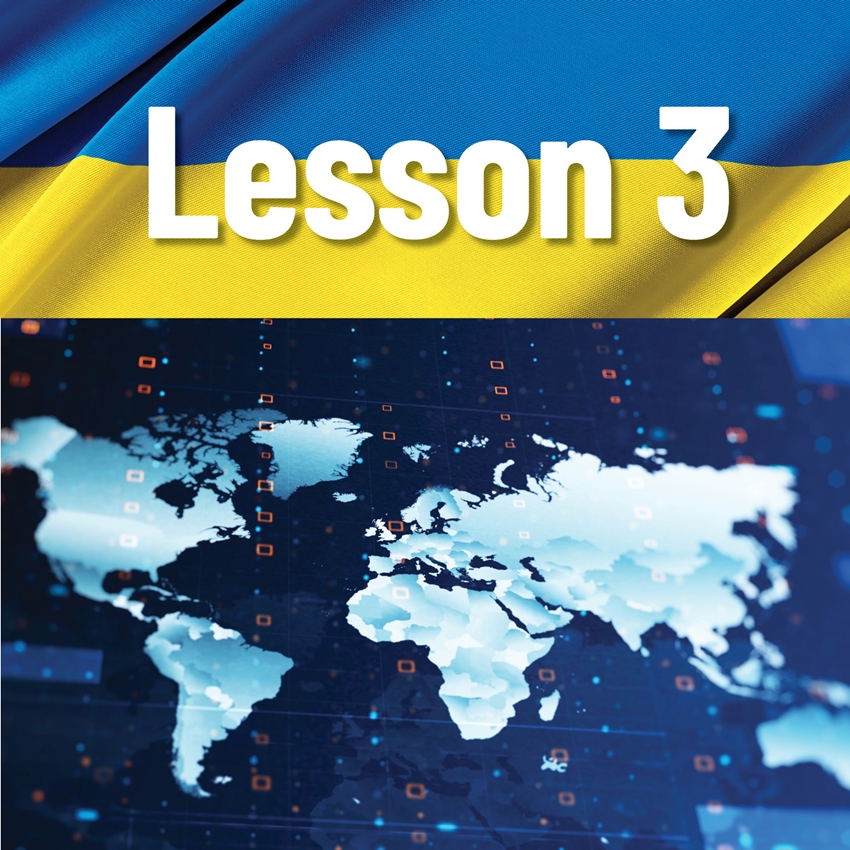Editor’s Note:
Arick Wierson, a columnist for The Robin Report, has undertaken the formidable task of dissecting and analyzing the broad and far-reaching consequences of Russia’s invasion of Ukraine as it relates to global retail. Understandably, we are presenting Wierson’s commentary in serialized lessons. This is the third of a three-part series.
Lesson 3: The Losses Incurred in Russia Will Force Retailers and Brands to Proceed More Cautiously as They Contemplate Future Overseas Investments
By the latest count, according to the list compiled and continually updated by Yale University’s School of Management – increasingly referred to as the “Russia Hall of Shame” – over 400 major global companies have withdrawn or otherwise scaled back their operations in Russia since the invasion of Ukraine. Many are re-evaluating their Russian presence through the prism of public relations as global consumer sentiment in the West has largely come to view the conflict between Russia and Ukraine in very black and white terms – a battle between good and evil, with Russian playing the role of the Empire and Vladimir Putin that of Darth Vader.
Rock and a Hard Place
And although many multinationals have thrown in the towel, pulling entirely out of the Russian market, others have tried to play it both ways – curtailing their businesses just enough to not get canceled by the woke digerati but keeping enough tentacles attached to the market so that if, and when, peace is restored, they can hope to quickly resume operations. But with the Russian President seemingly digging in even as Western efforts at diplomacy continue, all things Russian remain in the grip of widespread geopolitical grievance. And this could elongate any normalization of economic relations even if Russia and Ukraine were to come to some sort of peace settlement in the coming weeks or months.
On the other hand, a handful of other major Western retailers and consumer brands are seemingly defiant – or at least immune to public pressure – having made no announcements of plans to scale down their Russian operations — woke Gen Z activists be damned. Notably, France’s Decathlon, the largest sporting goods retailer in the world with over 1,600 physical locations and an enormous online presence, has stuck to its guns, resisting calls to shut down its stores in Russia. French retail giant and supermarket operator Auchan has also balked at pulling back operations across the nearly 300 points of sale and 38 retail malls it operates.
But it’s not only French brands that are loathe to say Das Vedanya to doing business in Mother Russia. Connecticut-based fast-food chain Subway has also come under fire for not doing more to close down its Russian business, although the company has suggested that in their franchise model, it has precious little control over the actions of international master franchise owners. Similarly, the U.S.-based Papa John’s and Domino’s pizza franchises have both come under lots of fire for dragging their feet when it comes to Russia.
Even Burger King has struggled to part ways with its Russian investments. Recent headlines have called out the difficulties facing the burger chain which is owned by Restaurant Brands International and has over 800 restaurants in the country. RSI owns just 15% of the Russian joint-venture with Russian oligarch Alexander Kolobov, who has defiantly “refused” to close them.
Public Pressure
Nevertheless, many consumers across the globe, shocked by the growing humanitarian calamity in Ukraine, have taken to social media to push for global boycotts for those brands that continue to place profit ahead of principle. But as the Washington Post outlined in a recent analysis, the window for pulling out of Russia is closing quickly – or may have indeed already closed in some cases. Companies that leave now, warns the Post article, could be seen as pandering, or worse yet — backing out merely to preserve their reputations and not because of any heartfelt or steadfast belief that what Russa is doing in Ukraine is evil and wrong.
The conundrum over doing business in Russia is testing the mettle of some of the world’s largest and well-known brands that have traditionally been averse to interfering in matters of state. But a growing chorus of voices in the business community is alerting CEOs that if you want to keep doing business in the rest of the so-called ‘free world’ one better pay attention to how the free world will view their actions in Russia now and in the future. Moreover, with his back against the wall, Putin’s recent threats of nationalizing businesses that depart Russia also makes a strong case that some CEOs might not even have businesses in the country at some point in the near future.
Reputations at Risk
Indeed, cutting ties to Russia – which carved out the moniker of ‘pariah state’ in near record time – might be the only way for many major retail brands to keep their reputations intact elsewhere. What this portends for the future of international retail growth and expansion is anyone’s guess; however, it stands to reason that, going forward, major brands might begin taking a much closer look at the geopolitics, government systems, human rights records, and other political-social KPIs of the places in which they might consider investing and doing business. If anything, the quick turn of events that transformed Russia, literally overnight, from a growing emerging market (remember the ‘R’ in BRICs?) to Evil Empire may be a tale of caution as CEOs take a more cautious approach to wheeling and dealing with unsavory players on the global stage.
Risk Analysis
Perhaps one of the less obvious but more consequential long-term impacts of the West’s ‘Great Russian Pullout’ will be a subtle yet clear-eyed re-evaluation of future overseas investments in some emerging markets and a de-risking of current positions in others. Will CEOs look at their positions in Saudi Arabia or even the Emirates and Qatar with a new set of eyes in the aftermath of the Russian fiasco? What about the countless Western companies doing business in China? Maybe French supermarket giant Carrefour will re-evaluate its investments in places like Iran where it has a stake in the Hyperstar grocery chain. Perhaps Yum! Brands will rethink the pros and cons of keeping their KFC and Pizza Hut franchises in a politically unstable place like Myanmar.
The conflict in Ukraine will be one of those moments in modern history – like Sept 11th, World War II, and the Great Depression – that will serve as a bookmark in the annals of history. So much of the world as we knew it before this event will be no longer once we come out on the other side of this crisis. And for the multi-trillion-dollar consumer goods and retail ecosystem, one of the biggest changes is likely staring us in the face: Where and who we do business will matter a hell of a lot more than it ever did before.




